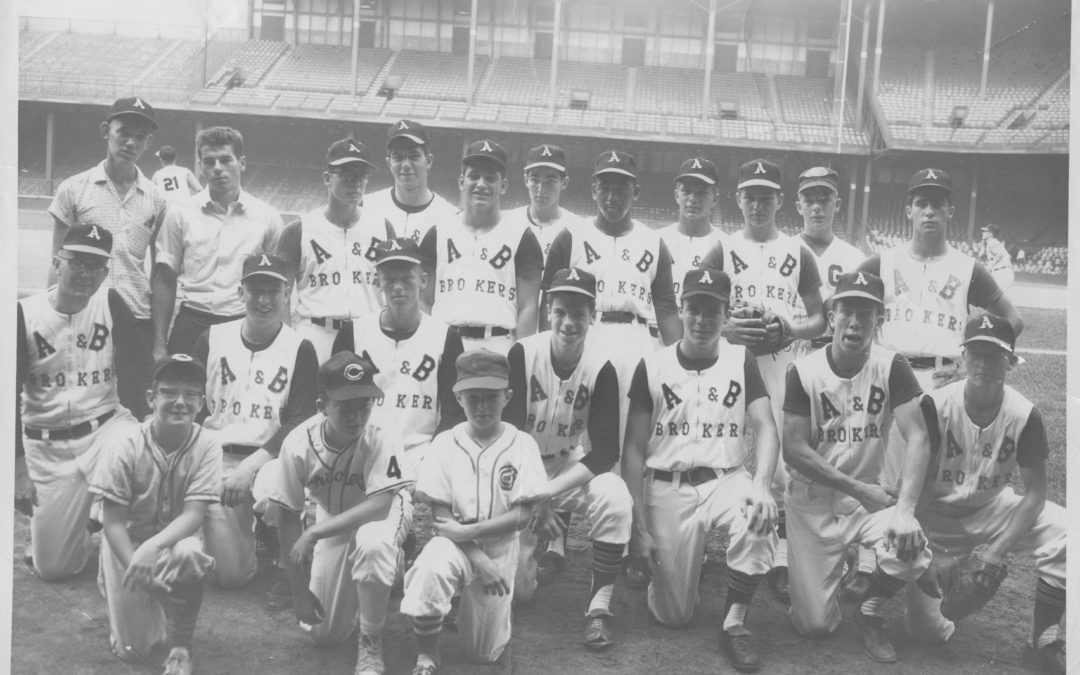“He ain’t nothin’ but a ham!” To this day after some fifty-five years, I can still hear Albert Mashall’s father’s booming voice as he stood outside the fence at the St. Catherine softball diamond. Albert was a black teammate of mine. His father never missed a game cheering all of us on, and, probably politically incorrect by today’s standards, taunted the opposing pitcher. I certainly appreciated the support he gave me and the rest of our team. It felt good to have someone verbally on our side.
Mr. Marshall wasn’t the only black man that mattered in my life. My brother Spider will be contributing a guest blog about another influential black man named Ed Rachal who mattered in his life. In the meantime, I would like to mention Mr. Gene Holmes, long-time baseball coach of the Bruins. The Bruins was a respected, summer team for seventeen and eighteen-year-olds. One summer, I found myself adrift with no team to join. I was hoping to continue my playing career at the University of Detroit but knew that without playing summer ball I would be way behind. I was alerted that the Bruins might be looking for an extra ball player. Truthfully, I was surprised but not taken aback when I went to practice and found out that I was only the third white player on the team.
Going back to one of the themes in our book Black and White Like You and Me, I quickly realized that no one really cared about skin color as long as you could play the game, did not have a big ego and did not whine. I was a very good second baseman, not much of an outfielder. The Bruins had a fine second baseman already by the name of Jake. I forget his last name. Jake was black and a great guy. I found myself in left field a lot. Regardless, I was grateful to be on a team. Coach Holmes was great. He was patient and fair. He cared about baseball and all of us. Remember, the year here was 1966 or 1967. The Civil Rights movement was in high gear. I only felt warmth and acceptance from this fine man.
Cookie Marsh raves about how he was influenced by so many black mentors during his youth. He was so fortunate to have black role models at the Boys Club, as high school coaches, and later as college professors. These people are highlighted in the book. Cookie claims that despite excellent “home training “, his environment could have led him astray had it not been for those fine men and women.
In conclusion, when I heard the slogan “Black Lives Matter,” I looked beyond its intent. Certainly, black lives matter and should not be thoughtlessly cast aside. As Cookie always says:
There is only one race: the human race.
But why do black lives matter? Why do any lives matter? God put us on this earth to help one another in ways we probably never even realize. I doubt if Mr. Marshall realized the effect of those six words. I doubt if Coach Holmes even remembers me as I was just one ball player during one season of his long career. But I remember them because their black lives mattered to me!


